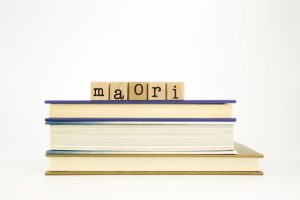

AdobeStock by gustavofrazao
Under the new National-led government, efforts are being made to minimise te reo Māori names and schemes supporting revitalisation of the language, such as allowances given to public servants for proficiency in te reo Māori; education union NZEI Te Riu Roa is one organisation who says they will fight back against the changes.
In early December, newly appointed Minister for Finance Nicola Willis said these cultural and language allowances were “bonuses”, stating she was seeking advice on how to stop them being integrated into future agreements. She said she will not support their inclusion when collective agreements are re-negotiated in 2025.
Read the Term 4 edition of School News HERE
Under current collective agreements, kaiako operating in te reo Māori receive a Māori immersion teaching allowance in recognition of their skills and expertise. Earlier this year, as a result of collective agreement negotiations and strikes, a cultural allowance was allocated to primary, kindergarten and area school teachers to recognise teachers who support the building of cultural capability in their schools, and are relied upon as a source of expertise.


Allowances for Māori medium kaiako begin at an additional $4000 per annum and may increase for long-term service.
Education is not the only area which pays additional te reo Māori allowances. Corrections and the Ministry of Justice and the Ministry of Environment also have clauses for te reo Māori allowances in their collective agreements.
National secretary for NZEI Te Riu Roa Stephanie Mills called Willis’ comments insulting.
“These allowances recognise expertise and specialist skills. They are essential to support teacher learning at all levels to meet the needs of students and school’s commitments to Te Tiriti under the Education Act.
“It’s about ensuring the system upholds the culture, language and identity of tamariki, te reo me ngā tikanga, which is exactly what these allowances recognise.”
Under the new coalition, government agencies have been directed to “communicate primarily in English” and put their English names ahead of their reo Māori titles.
Willis said “The changes to how the public service navigates the use of the Māori language contained in the coalition agreements will be progressed throughout the course of our term.”
A new parent portal from the Ministry of Education aimed at engaging parents and whānau…
The announcement of $53 million to cover teachers’ registration and practising certificate fees has been…
Applications for charter school conversion appear to have dried up after strong interest from the…
Will watching the Netflix drama Adolescence help us have hard conversations with young boys and…
Many students lack basic practical life skills like budgeting, letter writing, and preparing for a…
Educators and politicians are trying to address the current teaching shortage through different policy settings.…
This website uses cookies.